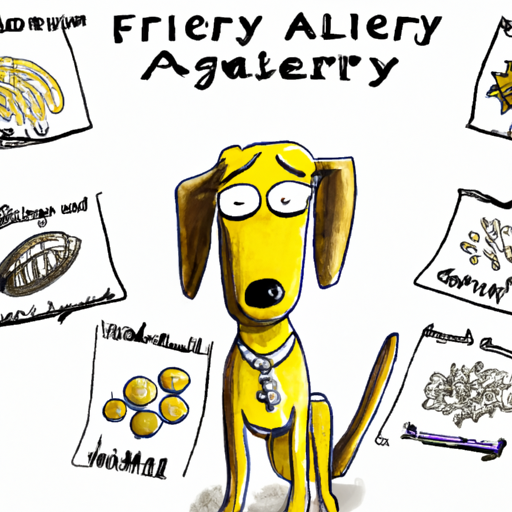As a caring pet owner, it’s always essential to understand what can potentially harm your furry friend. One of the common health issues dogs face is allergies. Surprisingly, some of these allergies originate from their food – specifically, grains. Today, we’ll delve into the world of canine dietary issues and explore the grains most likely to cause allergic reactions in dogs.
Understanding Canine Allergies: An Overview
Like humans, dogs can be allergic to a variety of substances. These allergies often manifest as skin problems, digestive issues, or respiratory distress. It’s essential to recognize these signs early on to prevent your pet’s condition from worsening.
Grains, found in many dog foods, are one of the common allergens. However, not all grains are created equal. Let’s look at which ones are most likely to cause issues.
The Most Allergenic Grains: A Closer Look
- Wheat: Wheat is a prevalent allergen, not just in dogs, but also in humans. Dogs allergic to wheat may experience symptoms such as skin rashes, ear infections, and gastrointestinal problems.
- Corn: Corn is another common allergen. It’s often used as a filler in many dog foods, making it difficult to avoid.
- Soy: While not technically a grain, soy is often lumped in with grain allergies. Many dogs have issues digesting soy, leading to similar allergic reactions.
| Grain | Common Symptoms |
|---|---|
| Wheat | Skin rashes, ear infections, gastrointestinal problems |
| Corn | Vomiting, skin issues, loss of appetite |
| Soy | Digestive issues, skin problems, lethargy |
Grain-Free Diets: A Possible Solution
Given the potential issues associated with grains, you might consider switching your dog to a grain-free diet. However, this decision should not be made lightly. A grain-free diet might not be suitable for all dogs, and it’s always best to consult with a veterinarian before making significant changes to your dog’s diet.
Uncovering Hidden Grains: Label Reading 101
When choosing dog food, it’s crucial to read the labels carefully. Manufacturers often hide grains under different names. For instance, “maize” is another term for corn. Being aware of these aliases can save your dog from an unnecessary allergic reaction.
Frequently Asked Questions (FAQs)
Q: Are all dogs allergic to grains?
A: No, not all dogs are allergic to grains. However, if your dog shows signs of allergies, it’s worth consulting a vet to see if grains could be the cause.
Q: Can my dog live a healthy life on a grain-free diet?
A: Yes, many dogs live healthy lives on grain-free diets. However, it’s crucial to ensure they’re getting all the necessary nutrients. Always consult a vet before changing your dog’s diet.
Q: How can I tell if my dog is allergic to grains?
A: Symptoms may include skin issues, digestive problems, and respiratory distress. If your dog shows these signs, contact a vet immediately.
In conclusion, your vigilance as a pet owner plays a significant role in your dog’s health. By understanding the potential dangers of grain allergies and how to avoid them, you can help ensure your furry friend lives a long, healthy, and happy life.



